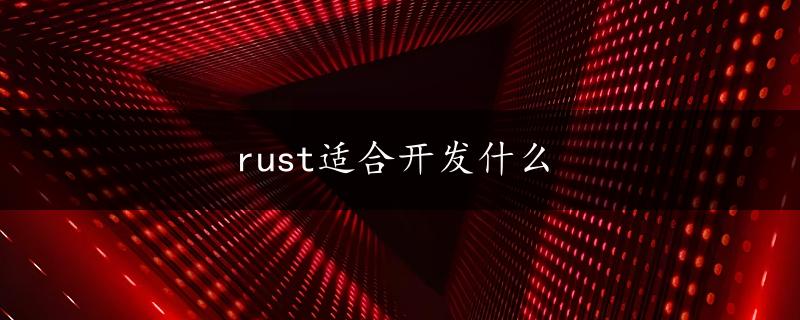Rust is a modern programming language designed for systems level programming. Rust's unique features make it a suitable choice for a variety of development projects, including:
1. Systems Programming - Rust is particularly well-suited for writing low-level system code, such as operating systems and device drivers, due to its memory safety and performance characteristics.
2. Networking - Rust's support for asynchronous programming, coupled with its ownership model, make it an ideal choice for building high-performance networking applications such as web servers, proxy servers, and load balancers.
3. Web Development - Rust's combination of speed and safety makes it a great option for web development, especially for applications that require real-time data processing. Rust's simplicity also makes it easier to develop web-based applications, while still achieving high performance.
4. Game Development - Rust's efficient memory allocation and management, as well as its concurrency model make it an excellent option for game development. Additionally, its strong type system and syntax make it easy for developers to write maintainable and reusable code.
5. Blockchain Development - Rust provides the security and low-level control required to develop blockchain applications. Its combination of speed and efficiency make it a good choice for developing decentralized applications that require high levels of performance and security.
Overall, Rust is a great choice for any projects that require high performance, security, and safety. Its unique features make it an attractive option for developers in a wide range of industries.













